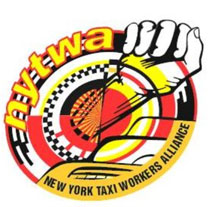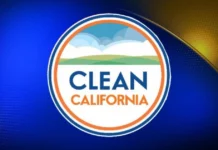 NEW YORK: Attorney General Eric T. Schneiderman and Taxi and Limousine Commission (TLC) Commissioner David Yassky have announced an agreement with Evgeny “Gene” Freidman, and four taxicab companies owned in part by Freidman, to pay $746,406 in restitution to drivers who were charged rates higher than the legally permissible amounts to lease cabs and medallions, as well as $500,000 in fines.
NEW YORK: Attorney General Eric T. Schneiderman and Taxi and Limousine Commission (TLC) Commissioner David Yassky have announced an agreement with Evgeny “Gene” Freidman, and four taxicab companies owned in part by Freidman, to pay $746,406 in restitution to drivers who were charged rates higher than the legally permissible amounts to lease cabs and medallions, as well as $500,000 in fines.
With control through his companies of more than 880 medallions, Freidman oversees one of the five largest fleets in New York City.
In order to ensure that drivers retain at least a minimal amount of take-home pay, TLC rules – first enacted in 1996 – limit the amount of money drivers may be charged for leasing taxicabs and medallions. Today’s agreement is the first settlement of its kind by the Attorney General under these “lease cap rules,” following a September 2013 agreement between the Attorney General and TLC to collaborate on enforcement of those rules. Several other investigations under that collaboration remain ongoing.
“Taxicab drivers arenot only an international symbol of New York City, they are also among the hardest-working New Yorkers,” said Attorney General Schneiderman. “Today’s agreement is the first major step in enforcing lease cap rules that protect workers and their already modest take-home pay. I’m confident that our new partnership with the TLC will continue to increase compliance in this important area.”
David Yassky, Commissioner of the TLC, said, “It is unconscionable to cheat hardworking taxi drivers out of their earnings – which aren’t very much to begin with. Today’s enforcement action should send a clear message to the taxi industry that violation of our driver-protection rules will not be tolerated.”
The Freidman companies involved in today’s agreement are 28th Street Management, Inc.; Downtown Taxi Management, LLC; Tunnel Taxi Management, LLC; and Woodside Management Inc. As agents for medallion owners, these companies control more than 880 medallions out of the total 13,231 medallions currently in existence in New York City.
Because of the extremely high cost of purchasing a medallion for a yellow cab (as much as $2.5 million for a pair of medallions at the most recent sale in November 2013), most taxicab drivers do not own their medallions. Instead, they lease medallions, and often vehicles as well, on a daily or weekly basis. NYC taxicab drivers are generally not employees and are therefore usually not covered by minimum wage, overtime, or many other labor laws.
The TLC lease cap rules, among the few workplace protections for drivers, limit the dollar amount drivers may be charged, and also strictly limit add-on charges that can be imposed upon drivers.
Taxicab drivers earn income from fares collected over the course of a shift, minus the amounts they must pay to medallion owners or agents for leases and add-on fees. Overcharges by owners or agents chisel away at drivers’ limited income.
To better enforce the lease cap rules, in 2011, the TLC formed the Lease Cap unit and devoted resources to the investigation and prosecution of driver complaints against owners and agents who were charging drivers more than the legal amount for the lease of taxicabs.
To date, the Lease Cap unit has investigated over 250 driver complaints and successfully prosecuted 55 cases resulting in $109,594.34 in restitution paid to drivers and $314,978 in imposed fines.
In addition to the agreement announced today, earlier this week a medallion owner was found guilty of retaliating against a driver for alleging overcharges with the TLC. The medallion owner was fined a total of $20,000, while the drivers under that medallion were awarded $10,000.
In 2012, the TLC estimated that the average driver income after paying the lease fee, sales tax, gas expenses, and fees was approximately $125 per day – before drivers paid Social Security and other taxes. However, drivers’ workweeks often consist of five to seven shifts of 12 hours each, and unlike employees covered by the labor law, taxi drivers do not receive any overtime pay.
Taking into account the extensive weekly hours commonly spent driving, taxicab drivers’ pay often barely reaches the rate that would be required for a minimum wage employee with the same working schedule.
The Freidman Companies routinely overcharged drivers in several ways from at least January 1, 2012. In some instances, they collected lease rates from drivers that simply exceeded the lease cap amounts. They also collected several types of impermissible add-on fees and charges, including a “shift excess time surcharge” fee of $3.50 per shift as well as vehicle registration, commercial motor vehicle and TLC inspection fees.
The Attorney General’s agreement requires the Freidman companies to pay restitution to drivers and to appoint an internal compliance officer to help the companies follow the law going forward.
In addition, the Attorney General and the TLC will regularly review the companies’ driver receipts and other documents to ensure compliance. If those reviews reveal material violations, the companies must hire an independent external compliance officer to ensure future compliance.
Bhairavi Desai, founder and executive director of the New York Taxi Workers Alliance, said, “Imagine having a job you can’t do without and a boss that stole from your paycheck every week.
After decades of overcharges, which left drivers impoverished and demoralized, this enforcement action by the Attorney General’s Office and the TLC gives us the first level of economic protection against a brutal leasing system where drivers labor long grueling hours without guaranteed income, only fixed expenses.
This enforcement sends a signal to the industry that compliance will be enforced, and just as resoundingly, it sends a signal to drivers that we are second-class citizens no more.”
Vincent Alvarez, President of the New York City Central Labor Council, AFL-CIO, said, “The notion that these medallion owners would rob hardworking cab drivers of their wages is yet another example of the greed that continues to force working men and women into poverty. Today’s decision is a real step in the right direction toward protecting workers’ wages from greedy business owners who opt to put profits over people.”
This case was referred to the Attorney General’s Office by the TLC.
The case was handled by Assistant Attorney General Elizabeth Wagoner, Special Assistant Attorney General David Ross, Special Assistant Attorney General Jason Gonzalez, Special Counsel Patricia Kakalec, and Labor Bureau Chief Terri Gerstein, under the supervision of Executive Deputy Attorney General for Social Justice Alvin Bragg.
India Post News Service






